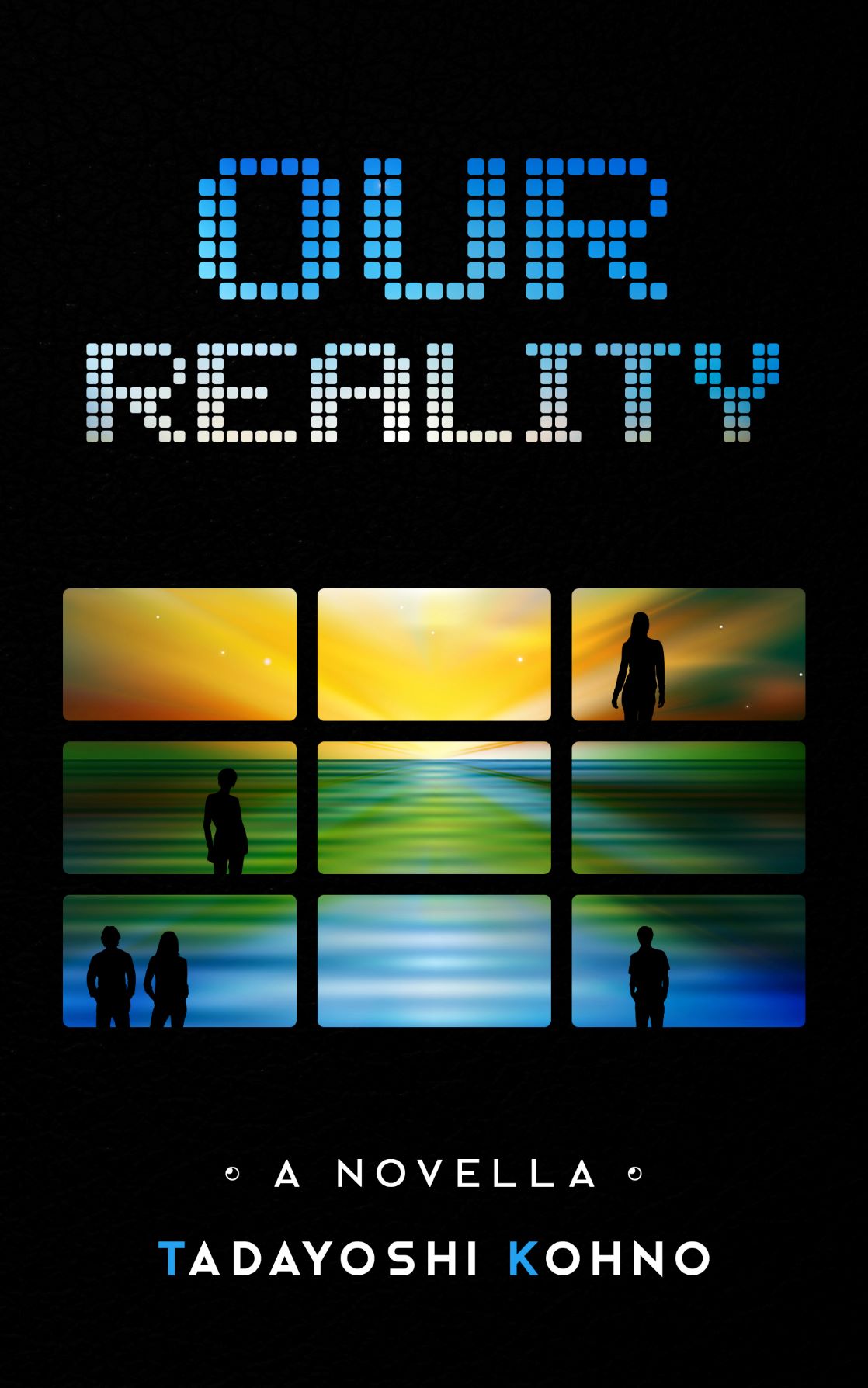
|
Our Reality: A Novellaby Tadayoshi Kohno (Please see the author's webpage for additional information about their academic work.) |
Our Reality: A Novella
Set in 2034, after The Pandemics of 2020 and 2024, Our Reality explores the challenges that a 16-year old Black high school student faces as she lives her life entirely online, in a constructed and impersonal digital world, and in a society where racism lingers in both people and technology.
Our Reality uses fiction to explore complex and deeply rooted questions, such as:
- How do individuals and society impact technology design? How do technologies affect individuals and society?
- In what ways can technology be unjust?
- What does it mean for a technology to be racist?
- How can technologies be made just if they are created by flawed human beings in an imperfect society?
Our Reality envisions one possible future world. Our real future world might resemble this story or differ completely. How do you want the future to unfold, and what will you do to make your vision a reality?
Free Download:
Please definitely use the above link if you can't afford a printed or Kindle copy or if the Kindle platform doesn't work for you.Educators: Please also see the form at the bottom of this page.
Additional Resources about Our Reality and its Content:
Links to Books Referenced in the Companion Document:
- Michelle Alexander. The New Jim Crow: Mass Incarceration in the Age of Colorblindness. The New Press, 10th anniversary edition, 2020.
- Ruha Benjamin. Race After Technology. Polity Press, 2019.
- Eduardo Bonilla-Silva. Racism Without Racists: Color-blind Racism and the Persistence of Racial Inequality in America. Rowman & Littlefield, fifth edition, 2017.
- Sarah Brayne. Predict and Surveil: Data, Discretion, and the Future of Policing. Oxford University Press, 2021.
- Meredith Broussard. Artificial Unintelligence: How Computers Misunderstand the World. MIT Press, 2019.
- Ryan Calo, Batya Friedman, Tadayoshi Kohno, Hannah Almeter, and Nick Logler, editors. Telling Stories: On Culturally Responsive Artificial Intelligence. University of Washington Tech Policy Lab, 2020.
- Sasha Costanza-Chock. Design Justice: Community-led Practices to Build the Worlds We Need. The MIT Press, 2020.
- Kate Crawford. Atlas of AI: Power, Politics, and the Planetary Costs of Artificial Intelligence. Yale University Press, 2021.
- Robin DiAngelo. White Fragility: Why It’s So Hard for White People to Talk about Racism. Beacon Press, 2018.
- Virginia Eubanks. Automating Inequality: How High-tech Tools Profile, Police, and Punish the Poor. St. Martin’s Press, 2018.
- Ibram X. Kendi. How to be an Antiracist. One World, 2019.
- Audre Lorde. Sister Outsider: Essays and Speeches. Ten Speed Press, 1984.
- Charlton D. McIlwain. Black Software: The Internet and Racial Justice, from the AfroNet to Black Lives Matter. Oxford University Press, 2020.
- Safiya Umoja Noble. Algorithms of Oppression: How Search Engines Reinforce Racism. New York University Press, 2018.
- Ijeoma Oluo. So You Want to Talk about Race. Seal Press, 2018.
- Cathy O’Neil. Weapons of Math Destruction: How Big Data Increases Inequality and Threatens Democracy. Crown Publishers, 2016.
- Caroline Criado Perez. Invisible Women: Data Bias in a World Designed for Men. Abrams Press, 2019.
- Nisi Shawl and Cynthia Ward. Writing the Other: A Practical Approach. Aqueduct Press, 2005.
- Kamal Sinclair and Jessica Clark. Making a New Reality: A Toolkit for Inclusive Media Futures. 2020.
- Beverly Daniel Tatum. Why Are All the Black Kids Sitting Together in the Cafeteria? And Other Conversations About Race. Basic Books, 2017.
- Sara Wachter-Boettcher. Technically Wrong: Sexist Apps, Biased Algorithms, and Other Threats of Toxic Tech. W. W. Norton & Company, 2017.
- Isabel Wilkerson. Caste: The Origins of Our Discontents. Random House, 2020.
- Alice Wong, editor. Disability Visibility: First-Person Stories from the Twenty-First Century. Vintage Books, 2020.
- Shoshana Zuboff. The Age of Surveillance Capitalism. PublicAffairs, 2019.
Links to Additional Resources Referenced in the Companion Document:
- Shalini Kantayya, producer. Coded Bias. 7th Empire Media, 2021.
- Cultural Competence in Computing (3C) Fellows Program. I encourage computer science educators throughout the world to apply to be members of the next cohort.
Links to Organizations Referenced in the Companion Document:
Links to Our Work on Security and Privacy Risks with Augmented Reality Technologies:
- UW Security Lab Augmented Reality, Computer Security, and Privacy page.
Additional Links:
For Educators:
- Educator Copies of the Printed Book. I have limited funds to supply free printed copies of the novella to educators in the United States. If you are an educator and are interested in receiving such copies, while funds last, please fill out this form. Please also note that a PDF of Our Reality is also available above.
- Educator Experiences and Reflections. If you are an educator and used this book in a course, and if you are willing to share your experiences and reflections, please fill out this form. Educators are encouraged to read the full novella and the companion materials before choosing to use this book in a course.